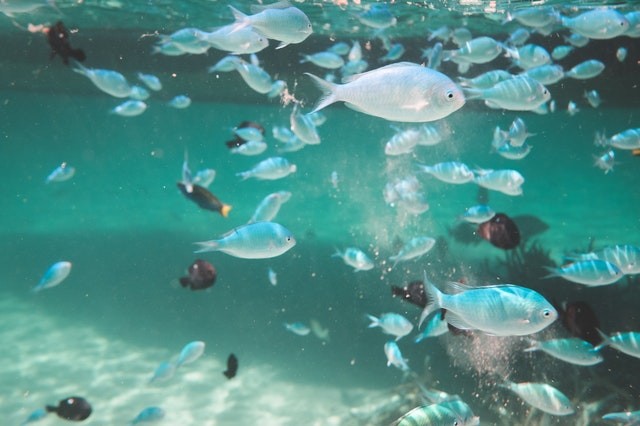New models in a recently published study found mid-ocean depths that support a lot of global fisheries are already losing oxygen at unnatural rates and passed a crucial threshold of loss of oxygen last year.
A ScienceDaily report specified that by 2080, approximately 70 percent of the global oceans could be suffocated from the absence of oxygen "as a result of climate change," potentially affecting marine ecosystems all over the world.
Oceans carry dissolved oxygen as gas, and aquatic animals, just like land animals, need that oxygen so they can breathe. However, as the oceans warm because of climate change, their water can hold less oxygen.
Researchers have been tracking the steady decline in oxygen for several years, although the new research offers new, pressing reasons to be worried about "sooner rather than later."

New models in a recently published study found mid-ocean depths that support a lot of global fisheries are already losing oxygen at unnatural rates and passed a crucial threshold of loss of oxygen in 2021.
Climate Models
The new study published in Geophysical Research Letters is the first to employ climate models to forecast the time and manner deoxygenation, which is the dissolved oxygen content's reduction in water, will occur throughout the oceans of the world outside its natural variability.
The new research found that substantial, possibly irreversible deoxygenation of the ocean's middle depths supporting much of the global fished species started to take place in 2021.
Essentially, the new models forecast that deoxygenation is expected to start impacting all regions of the ocean by 2080.
The middle depths of the ocean, from roughly 200 to 1,000 meters deep, also known as mesopelagic zones, will be the first zones to lose substantial amounts of oxygen because of climate change.
Impact of Deoxygenation
Universally, the mesopelagic zone is considered home to many of the commercially fished species of the world, making the new finding a possible harbinger of economic difficulty, seafood scarcities, and environmental disturbance.
Rising temperatures result in warmer waters that can hold less dissolved oxygen, creating less circulation between layers of the ocean.
The ocean's middle layer is specifically vulnerable to deoxygenation as it is not enriched with oxygen by the photosynthesis and atmosphere like the top layer, and the algae's most decomposition, a process that consumes oxygen, takes place in this layer.
According to oceanographer Yuntao Zhou from Shanghai Jiao Tong University, this particular zone is essential because a lot of commercial fish inhabit this zone.
Zhou, the lead study author, also explained that deoxygenation impacts other marine resources, although fisheries are probably most related to humans' everyday lives.
The Onset of Deoxygenation Process Identified
The scientists identified the start of the deoxygenation process in three ocean depth zones: shallow, middle, and deep, by modeling when oxygen loss from the water surpasses natural fluctuations in oxygen levels.
The research forecasted when deoxygenation would take place in worldwide ocean basins using data from two climate model simulations- one that represents a scenario of high emissions, and the other that represents a scenario of low emissions, a related Phys.org report specified.
This specifies that decreasing carbon dioxide and other greenhouse gas emissions could help delay the global marine environments' degradation.
The researchers also found that oceans closer to the poles, like the north and west pacific, and the southern oceans, are particularly susceptible to deoxygenation.
Related information about deoxygenation in the oceans is shown on the IUCN's YouTube video below:
RELATED ARTICLE: Possibilities of Life for Organisms at the Bottom of the Ocean, Other Planets Aside from Earth Discovered
Check out more news and information on Ocean in Science Times.














